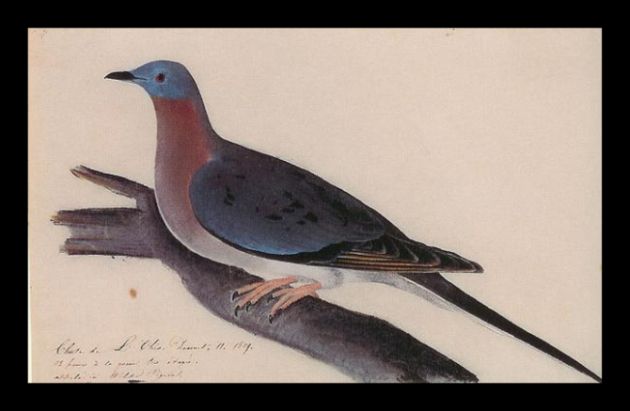
As we approach the 100th anniversary of the demise of Martha at the Cincinnati Zoo, one would think that there is little left to say about the prolific life and tragic death of the Passenger Pigeon. While the Dodo and the Triceratops may be more famous for being extinct, the scale of the slaughter required to eradicate billions of birds makes this species perhaps the most enduring symbol of our culture’s predilection for waste and folly. What, you may ask, is left to do but sigh sadly and shake our heads?
I am pleased to say that Joel Greenberg, in A Feathered River Across the Sky, has indeed created a new and highly worthwhile contribution to the literature of the Passenger Pigeon. Combining genuine literary talent with a passion for research and synthesis, he has written a book that will henceforward be the first that I recommend to anyone wanting to learn more about these iconic birds. Greenberg provides broad-ranging information on all matters Passenger Pigeon, from prehistory to post-extinction pop culture, and yet the book neither drags nor natters (though the chapters on hunting methods and the great slaughters were so effectively awful that I found my teeth grinding and my slapping hand itching a little bit for our stupid, stupid ancestors.)
I especially enjoyed the coverage of Pigeon ecology and their impacts on the landscape, a necessarily speculative but rich and vital subject that I have not seen covered in such depth elsewhere in the popular literature — possible links between the demise of the Passenger Pigeon and such matters as the decline of cane breaks and the rise of Lyme disease provide much food for thought. The Appendix, for those of you inclined to skip back matter, is also a must-read. But there are fine, understated poetic moments throughout the book — I was struck by a passage in which an artist noted for painting Passenger Pigeons, faced with old age and infirmity, “took his twelve-guage shotgun and entered the lost world of his subjects.”
If the book has a weakness, it is in the final chapter, where the author takes on the current extinction event as a whole. While all the topics he addresses — from overfishing to climate change — are real and urgent, I got the sense that after such a precise focus on a single species for so long Greenberg had dialed the zoom out too far and everything had gone blurry. Moreover, none of the sad truths he presents will be new to the kind of person who chooses to read a definitive account of the Passenger Pigeon in the first place.
That small matter aside, though, this is a rich and melancholy book that I would not hesitate to recommend to any birder.


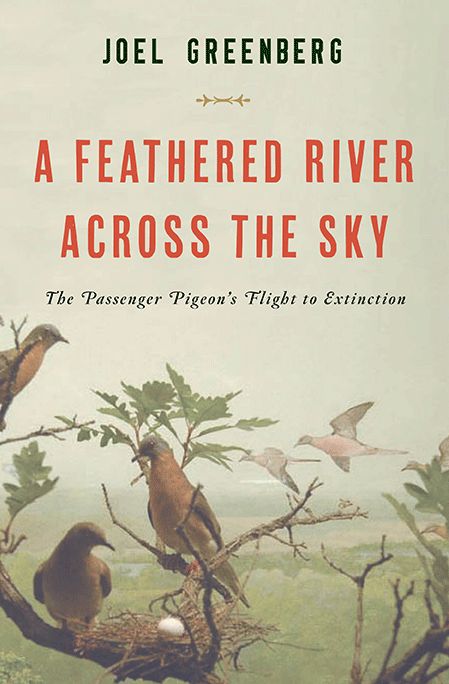





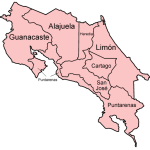

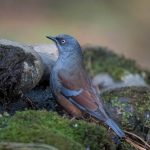

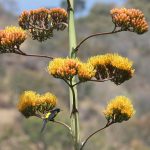
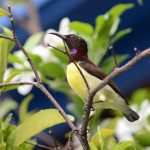

This sounds like a must-read book. I first learned about the rivers of Passenger Pigeons that once covered the skies from a biography of Audubon, and that image has haunted me. It will be interesting to learn more about the impact their absence has made on our ecological systems. Good review.
Sounds like a good book, I will definitely check it out next time I’m at the library!
You should keep a life list of books on extinct species you did a review about!
A very happy New Year, Carrie. And may the Rosy-Finches (all of them) finally find your feeder!
Thanks so much Carrie for the very kind words. I don’t know if you know Steve Gniadeck, of Missoula, but he and I were talking and he is going to try to get me up to your area. If so, I would love to get together.
Thank you, Jochen. I hope that 2014 is full of brightly-colored vagrants for you.
I haven’t met Mr. Gniadeck, but if you do plan a trip out here definitely let me know.
Thanks! Definitely a must-read.
Terrific article! That is the kind of info that should be shared across the
internet. Shame on the seek enjgines for no longer positioning this publish higher!
Come on over and discuss with my website . Thznk you =)